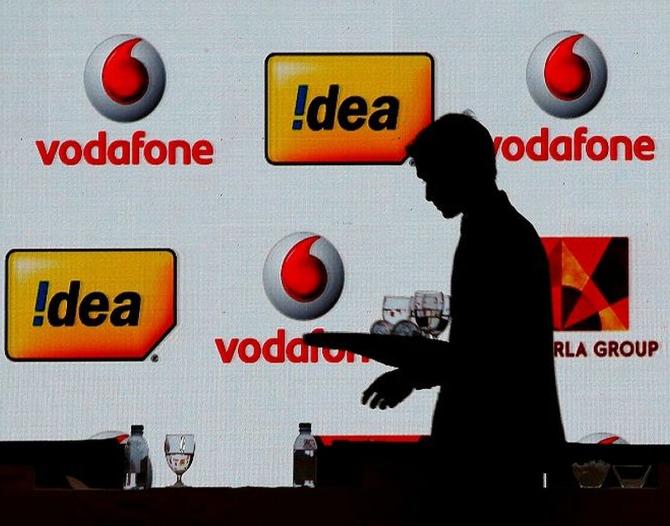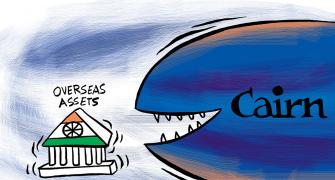Amid an existential crisis faced by the company, Vodafone Idea CEO Ravinder Takkar has reached out to employees seeking to reassure them, and has urged the staff to continue focusing on providing quality services to customers and sustain intensity in the market.

The move comes after billionaire Kumar Mangalam Birla on Wednesday stepped down as chairman of Vodafone Idea Ltd, within two months of offering to hand over Aditya Birla Group's stake in the debt-laden telco over to the government, in a bid to keep the telecom company afloat.
Takkar, in his communication, has urged employees to continue to remain focused on providing quality services to customers, sustain intensity in the market to win and deliver on goals.
He also communicated the top-level changes, to the employees, sources said.
An e-mail sent to Vodafone Idea (VIL) on the issue, did not elicit a response.
Meanwhile, the UK-based Vodafone declined to comment on a report that suggested it is ready to offer its VIL stake for free to Indian banks, financial institutions or to the state-owned Bharat Sanchar Nigam (BSNL), provided they take over the mobile telephony firm.
"We will not be commenting," Vodafone said in response to a mail sent by PTI.
On Wednesday, VIL has informed the stock exchanges that Birla will step down as non-executive director and non-executive chairman of the board with effect from end of business hours on that day. It did not give any reason for Birla's decision.
He will be replaced by Himanshu Kapania (who was earlier managing director and CEO of Birla's Idea Cellular) as the new chairman of Vodafone Idea Ltd.
The Supreme Court, last month, had rejected petitions by telecom companies, including Vodafone Idea and Bharti Airtel, for rectification of alleged errors in calculation of adjusted gross revenue (AGR)-related dues, payable by them.
According to official data, VIL had an AGR liability of Rs 58,254 crore out of which the company has paid Rs 7,854.37 crore and Rs 50,399.63 crore is outstanding.
Birla had, in June this year, offered to hand over the group's stake in debt-laden Vodafone Idea Ltd (VIL) to the government or any other entity that the government may consider worthy, to ensure that the company remains a going concern.
In a letter to Cabinet secretary Rajiv Gauba on June 7, Birla had said investors are not willing to invest in the company in the absence of clarity on AGR (statutory dues) liability, adequate moratorium on spectrum payments and "most importantly floor pricing regime above the cost of service".
Without immediate active support from the government on the three issues by July, the financial situation of VIL will come to an "irretrievable point of collapse", Birla had said.
"It is with a sense of duty towards the 27 crore Indians connected by VIL, I am more than willing to hand over my stake in the company to any entity- public sector/government /domestic financial entity or any other that the government may consider worthy of keeping the company as a going concern," Birla had said in the letter.
In September 2020, VIL had received an approval from its board to raise up to Rs 25,000 crore. However, the company has not been able to raise the funds so far.
According to Birla's letter, VIL has not yet approached any Chinese investors. Foreign investors, mostly non-Chinese, are hesitating in making investment in the company for understandable reasons, he wrote.
VIL's gross debt, excluding lease liabilities, stood at Rs 1,80,310 crore as of March 31, 2021.
The amount included deferred spectrum payment obligations of Rs 96,270 crore and debt from banks and financial institutions of Rs 23,080 crore, apart from the AGR liability.
Earlier, Vodafone Idea Ltd had also approached the government to seek one-year moratorium on payment of spectrum instalment of over Rs 8,200 crore, due in April 2022.
VIL, in a letter to the telecom secretary on June 25, 2021, had said it will be "unable to pay the instalment of Rs 8,292 crore due on April 9, 2022" due to "cash being used for payment of AGR (adjusted gross revenue) dues and the inability of the operations to generate the required cash in a predatory pricing situation".
Photograph: Danish Siddiqui/Reuters









